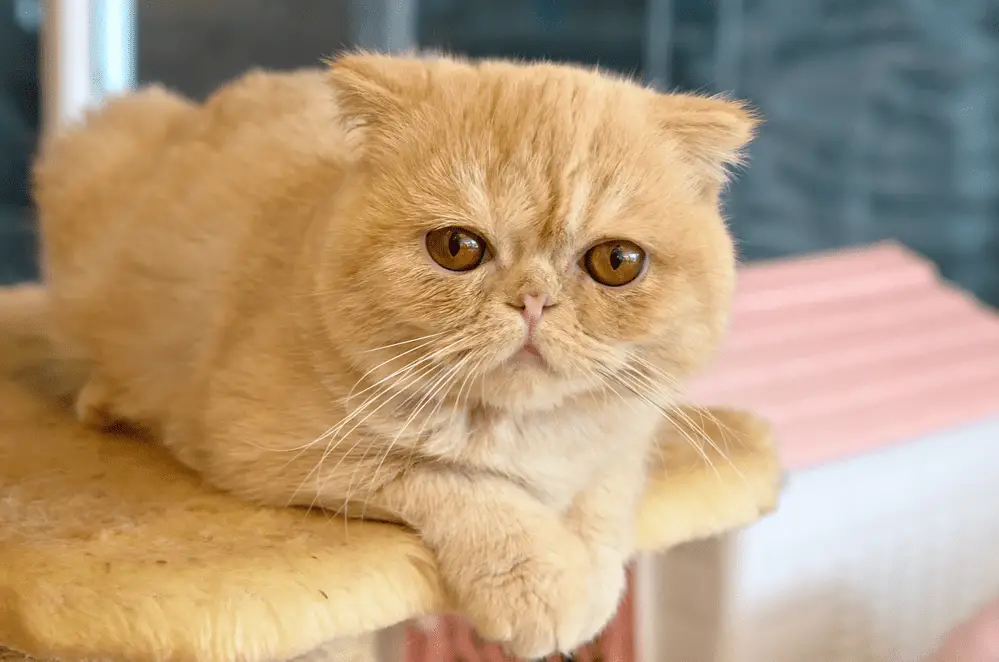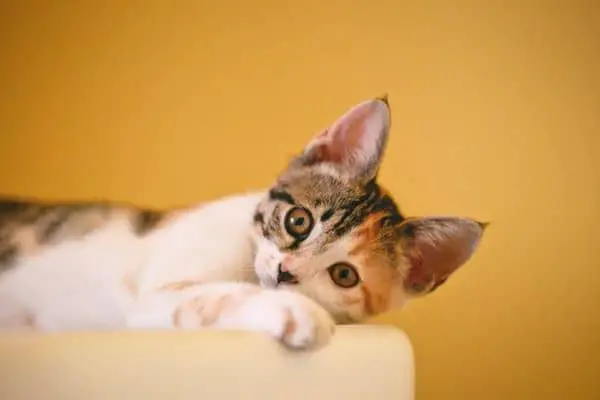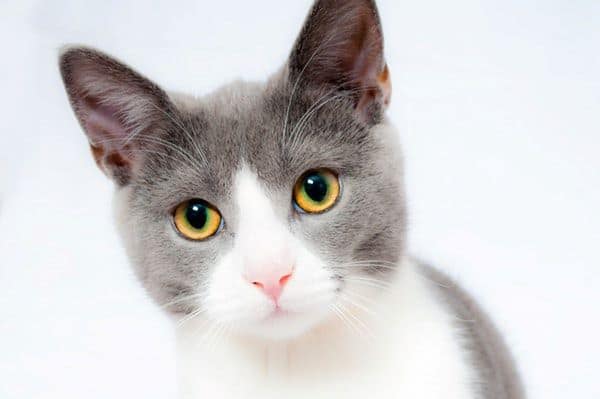Table of Contents
image source: pexels
A dash of teddy bear, good vibes, and loyalty, mixed with a low-maintenance care routine, makes the Exotic Shorthair cat one of the most popular breeds for adoption. These little lovers with big round eyes and a button nose are impossible not to fall in love with, but many people wonder if they make great pets. Exotic Shorthair cats are some of the best pets imaginable. Here we’ll tell you why you should adopt an Exotic Shorthair cat.
What Is an Exotic Shorthair Cat?
If you are a fan of cute cat videos or memes, you’ve seen an Exotic Shorthair cat. These soft and snuggly cats and kittens are so cute that they almost don’t seem real—they are that cute. With massive eyes and expressive faces, Exotics are full of expressive personality.
Exotic Shorthair History
Once upon a time in the 1960s, breeders looking to enhance the appearance of Persian cats began breeding them with American Shorthairs, Russian Blues, and Burmese cats. Cats born from these pairings were again bred with Persians. The result was an entirely new, albeit unexpected, breed of cat called the Exotic or Exotic Shorthair.
Exotic Shorthair vs. Persian Cat
Exotics share DNA with Persians because of breeding. They are playfully referred to as a “lazy man’s Persian” or a short-haired Persian. Exotic Shorthair cats do indeed share many similarities with Persian cats. Both share unique and adorable smushed faces, but Exotics have shorter, more manageable hair than that of a Persian. Grooming and hair care for an Exotic is, therefore, less time-consuming overall.
Currently, breeding guidelines for Persians and Exotics are the same. The only thing setting the two apart at birth is the length of their hair. Persians have long hair while Exotics have short hair. Faces for Exotics and Persians are the same. Both have short, broad, and flattened faces.
Hair aside, Exotics are much more affectionate than Persians. Whereas Persians maintain a somewhat aloof and detached presence within the home, an Exotic graciously accepts your cuddle attempts and sincerely wants affection.
Personality
Exotics have an endearing character that wants companionship and touch. They are gentle, quiet, and altogether a pleasure to spend time with. These cats enjoy playtime and relaxing equally. When in the mood, they can be exceptional playmates. When it’s time to relax, nothing makes them happier than sitting in your lap for a good petting session. Exotics are curious, intelligent, and willing to learn new tricks.
Exotic Hair Type
Exotics have thick, plush medium-length fur that is remarkably soft. Undercoats on the belly of the Exotic are equally thick and luxurious, creating a full shield of fur that makes this cat look larger than it is.
Exotic Shorthair Coloring
Originally, Exotics were bred with silver coats. These days, their coats are of many colors and patterns. Coats found on Exotics include:
- Bicolor
- Calico
- Color Point
- Golden
- Himalayan (color changing)
- Particolor
- Shaded
- Silver
- Smokey
- Solid
- Striped
- Tabby
- White
Eye Color
Exotics have empathic and mesmerizing, large round eyes. Eye colors for this cat breed are blue, blue-green, or dazzling copper.
Sizing
Exotic cats come in various sizes depending on their breeding. With short legs and a square body, this cat breed stays relatively short. A healthy Exotic body is boxy with dense, strong bones and can grow to about 10 to 12 inches in height. Weight-wise, they can grow up to around 10 to 20 pounds.
Is an Exotic Shorthair Cat a Good Pet?
As a pet, Exotic Shorthair cats are exceptional pets. We know exotics for their calm, friendly, and highly affectionate demeanor. With an intermediate energy level, these cats won’t be climbing the walls, but they enjoy playing.
Social Creatures
Social by nature, Exotic Shorthairs thrive in environments where they receive a lot of attention. Petting, snuggling, brushing, or engaging an Exotic in games helps keep this cat breed healthy and happy.
Companion Animals
Exotics are so loving and kind that they are often chosen as companion animals. Sharing affection with companion animals has been proven to reduce blood pressure and decrease the risk of other debilitating health issues. With an insatiable craving for physical endearment, Exotics fit the bill for companion animals.
Getting to Know You
Sometimes it takes an Exotic some time to learn to trust new people. When strangers appear on the scene, Exotics can grow cautious. An Exotic cat will usually open up to the visitor after the warm-up phase is complete, and they establish trust.
In Isolation
Exotics aren’t fond of alone time and prefer to spend their days with people or other animals. If you spend a lot of time away from home, make sure your Exotic has a friend to play with. If nothing else, turn on the radio to keep your kitty socially stimulated.
Exotic Shorthair Nutrition
Depending on the breeding, some Exotics may be prone to obesity. With their short frame and low-hanging belly, obesity could cause more problems than it might for other breeds. Always consult a veterinarian about the nutritional needs of your Exotic. These needs will alter during different stages of the cat’s life.
Exotic Lifespan
The average Exotic lifespan is around 15 years or more.
Exotic Health
All pets, like humans, are susceptible to health issues. Exotic Shorthairs have a few hereditary health concerns typical of the breed. Below are some more common genetic conditions Exotics sometimes face.
Breathing Problems
Any animal with a flattened muzzle may experience some form of breathing difficulties. Exotics are no exception.
Overheating
Their flat faces also make them more sensitive to overheating. Never leave an exotic in a hot apartment, house, or car. This could cause problems with the respiratory system and could be fatal.
Polycystic Kidney Disease (PKD)
PKD is a hereditary condition that causes enlarged or dysfunctional kidneys. Symptoms of the disease may present themselves after the cat is three years old.
Eyelid Agenesis
In some cases, Exotics are born with eyelids that do not fully form. As a result, eyes are left vulnerable to outside pollutants and never adequately hydrated.
Here’s 10 Reasons You Should Adopt an Exotic Shorthair Cat
image source: pexels
1.
Lap Lovers. Chill and affectionate, Exotic Shorthairs are all about giving and receiving love. These cats will gently yet unabashedly request time on your lap for some good old fashioned TLC time. Male Exotics usually need more affection than their female counterparts who are more independent by nature.
2.
Playful Kitties. Unlike Persians who are somewhat temperamental, Exotics love to play. From birth to adulthood, Exotics are up for a good time. If you want a cat that wants to catch the plush fish on the pole or can learn to play catch, an Exotic is for you.
3.
Low-Key Loungers. Although Exotics are playful, they have low needs for exercise. As long they are eating the right amount of food, and in good health, Exotic Shorthair cats don’t need a lot of physical activity.
4.
Child-Approved. Because Exotics are so sweet and gentle, they are great with children. Because they look so much like a plush toy, your children will love them even more. Exotic Shorthairs are considered as some of the very best cats for kids.
5.
Loyal Friends. When making friends with an Exotic, it’s a friend for life. Both male and female Exotics are extremely loyal companions. They may devotedly follow you around or softly croon with their sweet voices to remind you just how special you are to them.
6.
Easy Grooming. Exotic Shorthair cats have a low-maintenance beauty routine. Because their hair is short, it isn’t prone to matting or tangling. An affectionate comb out twice per week is all that’s required to keep your furry friend (and your couch) looking and feeling fabulous.
7.
Seasonal Shed. Unlike many kitties with long, luxurious hair, Exotics only shed seasonally and as a result, they are considered a “non-shedding” cat breed. Your Exotic will need a little pampering when seasons shift a few times per year to get the hair out, but that’s nothing compared to a regular shedding schedule.
8.
Fun and Games. Exotics love to solve puzzles and learn tricks. If you need to keep your Exotic occupied in between petting sessions, bring out cat puzzles to stimulate his or her mind. Exotic cats are also interested in learning tricks like “sit.”
9.
Dog-Friendly. Easy-going and pro-social, Exotics generally get along well with other pets, including dogs. If you are looking for an addition to your pet entourage, an Exotic could be the perfect fit.
10.
Inside Voice. Exotic cats aren’t generally very chatty. Their voices are often soft and sweet when they use them. Most often, Exotics will choose silence over long, powerful soliloquies. Adopting an Exotic Shorthair means never getting a 4 a.m. surprise wake-up call when your cat is ready for breakfast.
Conclusion
image source: pexels
It’s no wonder why the Exotic Shorthair cat is one of the most sought-after cats for adoption. As one of the most loving and friendly cat breeds ever known, Exotics make exceptional pets and companion animals. Not only are they peaceful and serene around humans of all ages, but they also get along well with other animals. If you are looking for a cat breed that will stand by your side like only the best of friends do, the Exotic Shorthair is a marvelous choice.
[amazon bestseller=”cat tree” items=”5″]



